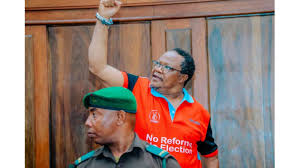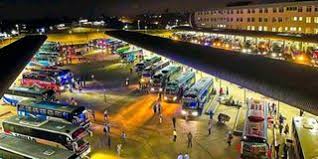The death of Orange Democratic Movement (ODM) leader Raila Odinga has left the party at a crossroads, with analysts warning that his absence could expose deep divisions and test the loyalty of members who once thrived under his influence.
Speaking during Citizen TV’s Daybreak show on Tuesday, political analyst Dr. Barrack Muluka cautioned that ODM is now vulnerable to internal betrayal by opportunistic members he referred to as “political parasites.”
“The parasites need hosts to survive. Raila was their host. Now that he is gone, they are already seeking new hosts—some turning to President William Ruto. What happens next depends on whether the ODM ‘warriors’ can protect the party from being consumed,” said Dr. Muluka.
Muluka’s remarks come amid rising concern that some ODM politicians are warming up to President Ruto’s government, a move seen by loyalists as betrayal to Odinga’s legacy.
During Odinga’s burial in Bondo, Siaya County, on Sunday, party members appeared split on the way forward. While ODM leaders serving in Ruto’s Cabinet praised the late opposition leader’s cooperation with the president, others — including Secretary-General Edwin Sifuna — criticized what they called “political opportunism.”
Former Law Society of Kenya (LSK) President Nelson Havi also weighed in on the debate, describing ODM as divided between “warriors” who embody Raila’s values and “parasites” who seek power for personal gain.
“We have true warriors like Sifuna, Babu Owino, and Caleb Amisi — people shaped by ODM’s ideology. Then there are parasites pretending to be loyal while plotting their next move. ODM must remove them if it is to survive,” Havi said.
Former Makueni Governor and law professor Kivutha Kibwana added that ODM’s participation in Ruto’s “broad-based government” will be a difficult balancing act, warning that the president’s leadership style might not easily accommodate opposing voices.
“It will not be easy for ODM members to remain in government circles. President Ruto is not one to be told what to do. Whether they are warriors or parasites, ODM leaders must know their survival depends on his goodwill,” Kibwana explained.
He further noted that without Raila’s unifying force, politicians may start shifting alliances depending on public sentiment.
During the burial, President Ruto praised Odinga for his lifelong dedication to democracy and unity, vowing to continue working with ODM.
“ODM will either form the next government or be part of it. Baba believed in multi-party democracy, and I will protect ODM from being weakened or sidelined,” Ruto declared.
In the meantime, Siaya Senator Oburu Oginga, Raila’s elder brother, has been appointed as acting ODM leader following a National Executive Committee (NEC) meeting last Thursday.
The committee agreed that Oburu will hold the position until another NEC meeting determines the party’s long-term leadership structure.
Political observers say the coming months will be crucial for ODM as it tries to balance loyalty, rebuild unity, and define its identity in a post-Raila era.
“Raila’s absence is a test of character for ODM,” said Dr. Muluka. “The question is whether the party can remain a movement of ideals — or become a shell occupied by those who once fed off his influence.”
With the 2027 general elections on the horizon, ODM’s future now depends on how it manages its internal politics and whether it can produce a new generation of leaders to carry on Raila Odinga’s legacy.



